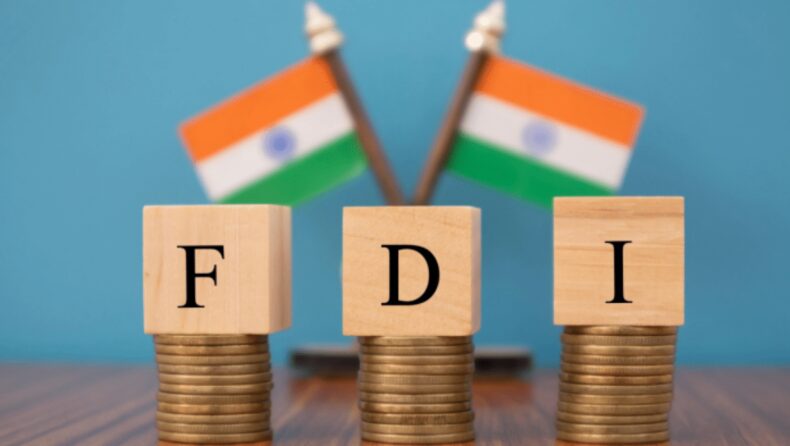The government announced on Saturday that due to economic reforms and the ease of doing business, India is on track to bring in USD 100 billion in foreign direct investment (FDI) during the current fiscal year. Inflows of USD 83.6 billion from abroad were the “largest ever” for the nation in 2021–2022.
An ownership stake in a foreign company or project is known as a foreign direct investment (FDI) and is made by a foreign investor, business, or government. Typically, the phrase refers to a corporate decision to buy a sizable portion of a foreign company or to buy it all together in order to expand operations to a new area.
The phrase is typically not used to refer to a stock purchase in a single overseas firm. FDI is a crucial component of global economic integration since it forges strong, long-lasting ties between nations’ economies.

“This foreign direct investment (FDI) has been made in 57 industries, 31 union territories, and 101 nations. India is on pace to attract USD 100 billion in FDI in the current FY (financial year), thanks to recent economic reforms and improvements in the ease of doing business “The commerce and industry ministry was quoted by PTI as saying.
According to the article, the government has implemented a liberal and open policy that makes the majority of industries available to FDI via the automatic route in an effort to entice foreign investment. In order to decrease unnecessary compliance burden, lower costs, and improve the ease of doing business in India, the reform measures include liberalizing rules and regulations, it was said.
The industry group also predicted that India’s economic growth in FY22/23 would be among the highest in the world. Pradeep Multani, president of the PHDCCI, predicted real GDP growth of above 8% for FY22/23, almost a full notch higher than the Reserve Bank of India’s forecast of 7.2%.

Foreign direct investments (FDIs) are sizeable, long-term investments made into a foreign enterprise by a company or a government. Investors in foreign direct investment (FDI) frequently hold controlling positions in domestic businesses or joint ventures and actively participate in their management.
The investment could entail purchasing a material supply, growing a business’s reach, or establishing a global presence. Over the past few years, China and the United States have been the major recipients of FDI.
The top contributors to FDI outside of their own boundaries have historically been the United States and other OECD nations.
On the strength of its economic reforms and initiatives to make doing business simpler, India is on track to draw $100 billion in foreign direct investment (FDI) in the current fiscal year. On Saturday, the government released this assessment (September 24). According to a statement from the Ministry of Commerce and Industry, 51 sectors and 31 Union Territories and States have received FDI from 101 different nations.
According to research released on Friday by the Ph.D. Chamber of Commerce and Industry (PHDCCI), the amount of foreign direct investment (FDI) coming into India is predicted to surpass $100 billion in FY2022/23, supported by major economic reforms and improved business conditions.
The ministry has added that India is working toward receiving $100 billion in FDI in the current fiscal year as a result of its economic reforms and initiatives to improve the ease of doing business. In 2021–22, the nation attracted $83.6 billion in foreign investment, the biggest amount ever.
According to the ministry, the government has established a liberal and open policy in which most sectors are accessible to FDI via the automatic route in order to encourage international investment. It claims that the reform measures have been implemented to lower unneeded compliance expenses and to increase commercial convenience.












